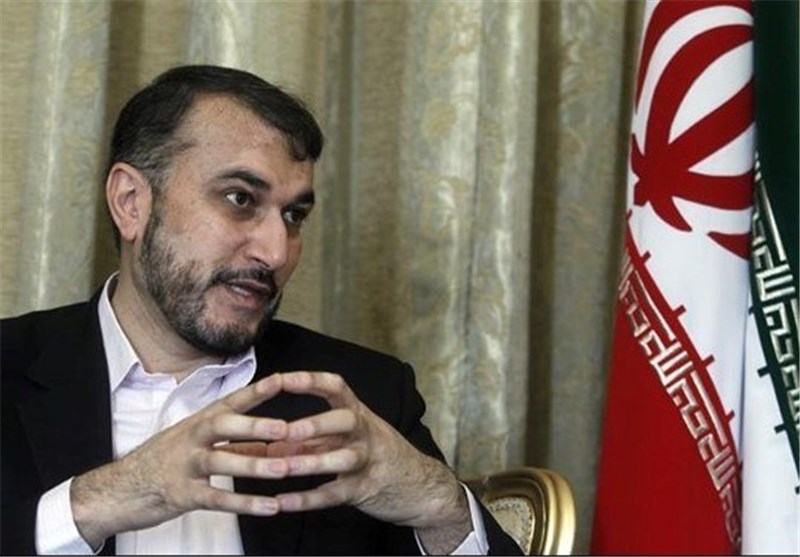
RNA - "The international community should support the Iraqi government and people, as well as its territorial integrity," Amir Abdollahian said during the meeting.
The top advisor, meantime, said that Iran will continue to support the territorial integrity of Iraq.
The top advisor also lauded the decisive role of religious authorities, Iraq’s Prime Minister Haider al-Abadi, the government, the people, the parliament, the armed forces and Hashd al-Shaabi (popular forces) in cleaning Iraq from terrorists, and said, "The Islamic Republic of Iran will continue its comprehensive supports for Iraq to restore the country’s security and stability in the region."
Kubiš, for his part, expressed his satisfaction with holding a common position with the Islamic Republic of Iran in contributing to the stability and security in Iraq after ISIL, and said, "We want the assistance of the federal democratic government of Iraq, in which, according to our joint opinion with Iran, all ethnicities, including Kurds, Shiites, Sunnis and Turkmens live together at security and peace.”
"We must recognize the differences and disagreements and prevent their occurrence since these kinds of disputes have the potential to become a serious disagreement and a crisis,” he noted, adding that since 2003, and during the transfer of power, there have always been controversial issues between various Iraqi groups, and we should acknowledge al-Abadi is currently in a position to help solve problems.
He underlined that the current situation in Iraq is such that international organizations, including the United Nations, must take the necessary steps in cooperation with the Iraqi government to strengthen national reconciliation under the Constitution of Iraq.
In a relevant development on Saturday, Iranian President Hassan Rouhani reiterated his country's opposition to plots to disintegrate Iraq, calling for unity among different Iraqi groups.
"Maintaining unity and stability in Iraq is highly important to us because the two countries' security and stability is interwoven," Rouhani said in a meeting with his Iraqi counterpart Fuad Ma'soum in Tehran.
Stressing that Iran wants national unity and integrity in Iraq, he said, "Any change in the geographical borders can create lots of tensions in the region for tens of years. We want a united Iraq and hope that Shiites, Sunnis and Kurds will always have a single voice against the enemies."
Ma'soum, for his part, called for increased anti-terrorism cooperation with Iran, and underscored his country's willingness to use Tehran's experiences to decrease reliance on oil and gas revenues.
847/940